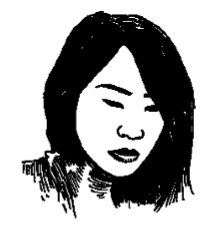Susie Suh’s eponymous collection is the debut of a twenty-five-year-old who grew up performing Korean folk songs on local TV with a children’s choir in her native Los Angeles. At age thirteen, she moved east to attend Exeter, then (after a year at NYU) finished a degree in English at Brown. Her album appears not on one of the countless indie labels that mainly supply pop music with uncliched new artists right now, but on an old-line New York major, Epic, and was produced not by some brilliant flip-flopped school chum of Suh’s, but by Glen Ballard, as enormous a Los Angeles pop producer as exists, a multiplatinum dude who brought us Alanis Morissette. But the record doesn’t sound like recently matured youth showbiz or expensively educated singer-songwriterdom or record-biz money or even the Hollywood rock players Ballard casts on the predominantly acoustic tracks; the record sounds like 2005’s least preordained music.
If you could imagine Whitney Houston or Mariah Carey engaged in songs excised of all divahood, you might have the start of an idea of what Suh sounds like; clearly her voice, a highly emotional engine of silk and smoke and breaks and flows, boasts more sonic dimensionality than any new singer’s in years, and time and again on Susie Suh her singing occupies, enlivens, and stretches through spaces in the spare arrangements in ways that most singer-songwriters’ voices physically cannot. Because such generously melodic songs as “Your Battlefield,” “Shell,” and “All I Want” are in their bones modern blues, a lesser singer would just work that notionally emotional terrain and make a whizbang genre impression guaranteed to wow fans of the style.
Suh never does that. Just as she forgoes the big diva moves she’s outfitted to make, she accordingly resists generic allegiance. On “Petrified to be God-like,” she sings an English postpunk blues the Cure’s Robert Smith might have written, given both the sadly mirrored tint of its closely curbed minor-key melody and its depressive self-indictment. But elsewhere, singing an otherworldly love song such as “Light on My Shoulder” or hanging out in the mall parking lot in “Seasons Change,” dressed in her “work uniform,” trying to warm somehow to “vacant cars,” Suh sounds like nothing except herself.
Actually, there is something it sounds like. Between 1795 and 1805, a Korean crown princess began to write, at sixty, a series of four memoirs about the trying life she endured as a member of the royal court. Prepared in an authoritative edition by the scholar and translator JaHyun Kim Haboush as The Memoirs of Lady Hyegyong: The Autobiographical Writings of a Crown Princess of Eighteenth-Century Korea (1996) and reimagined by the English novelist Margaret Drabble as the exceptional first half of her novel The Red Queen (2004), this writing proceeds with a voice as realized and memorable as anything in literature. The voice is structured, free, formal, singed, and, in Drabble’s literary recreation, all-knowing, given how one of the conceits of the fictional presentation is that the crown princess lives on through the centuries, aware of all past, present, and future time.
Here is Drabble’s Crown Princess on the difficulty of life with her wandering husband: “We played a double game. We had to disguise his absences somehow…. The head eunuch… lay in the inner room, speaking and giving orders in the manner and voice of the prince…. Perhaps it is better not to discuss the terror and shame this duplicity produced in each of us who participated in it.”
The crown princess, to be sure, is responding to political succession in the context of madness, murder, and her husband’s eventual excruciating death in a locked rice chest—events few royals anywhere face. Suh is another singer-songwriter trying to figure out her life and her heart. But Suh and Drabble’s crown princess share the idea that emotions at their outermost limits are magnificently conveyed from fiercely sustained reserves of calm.





